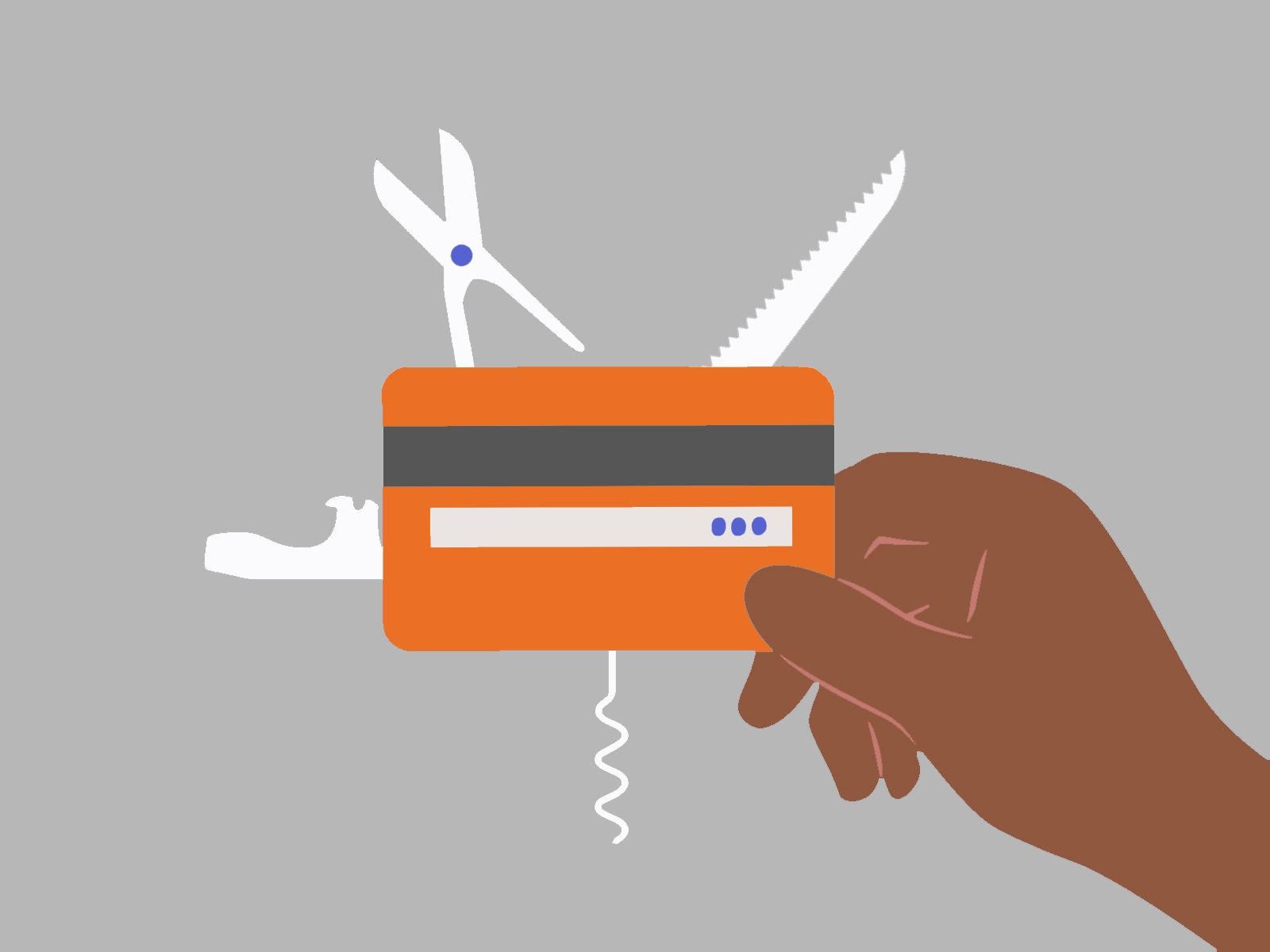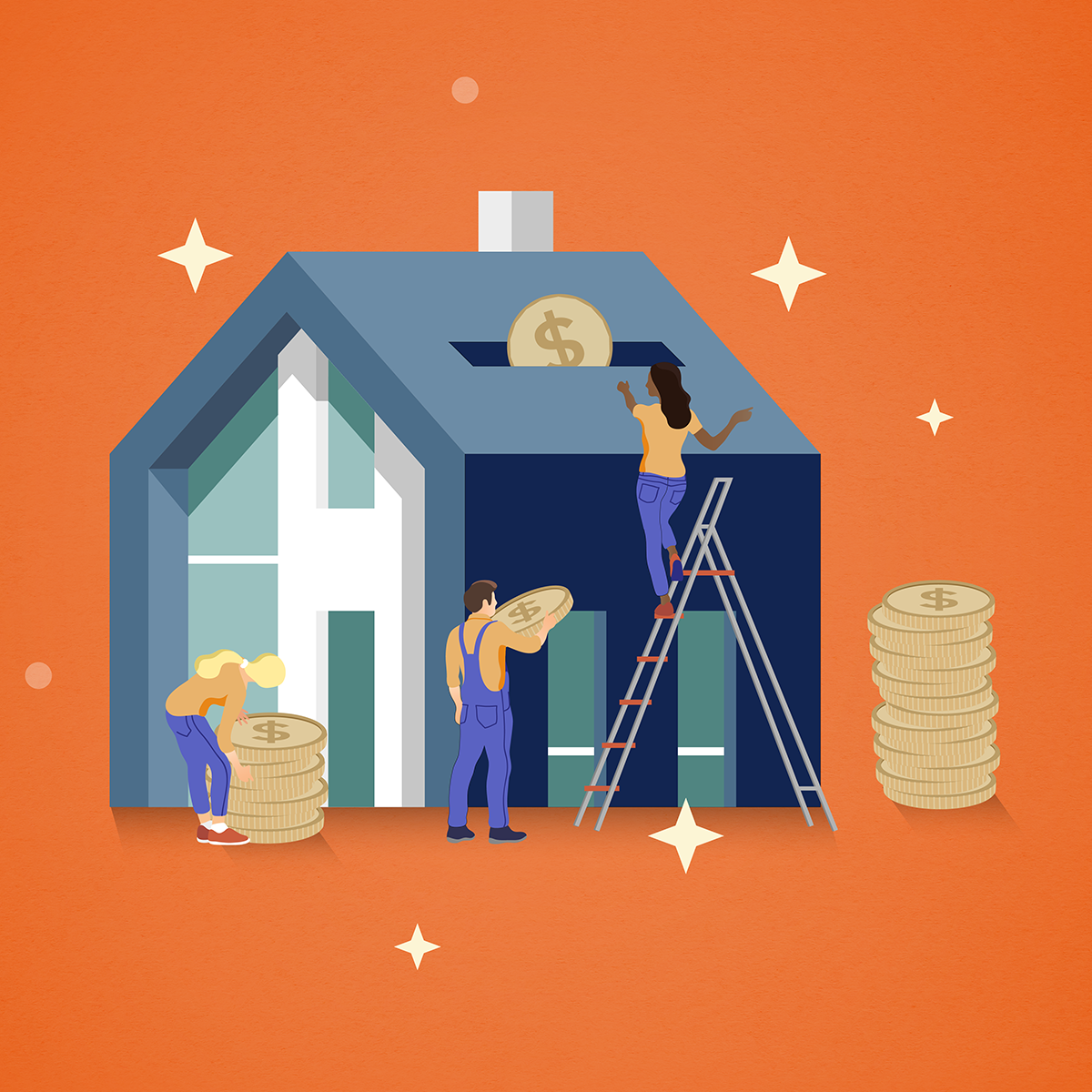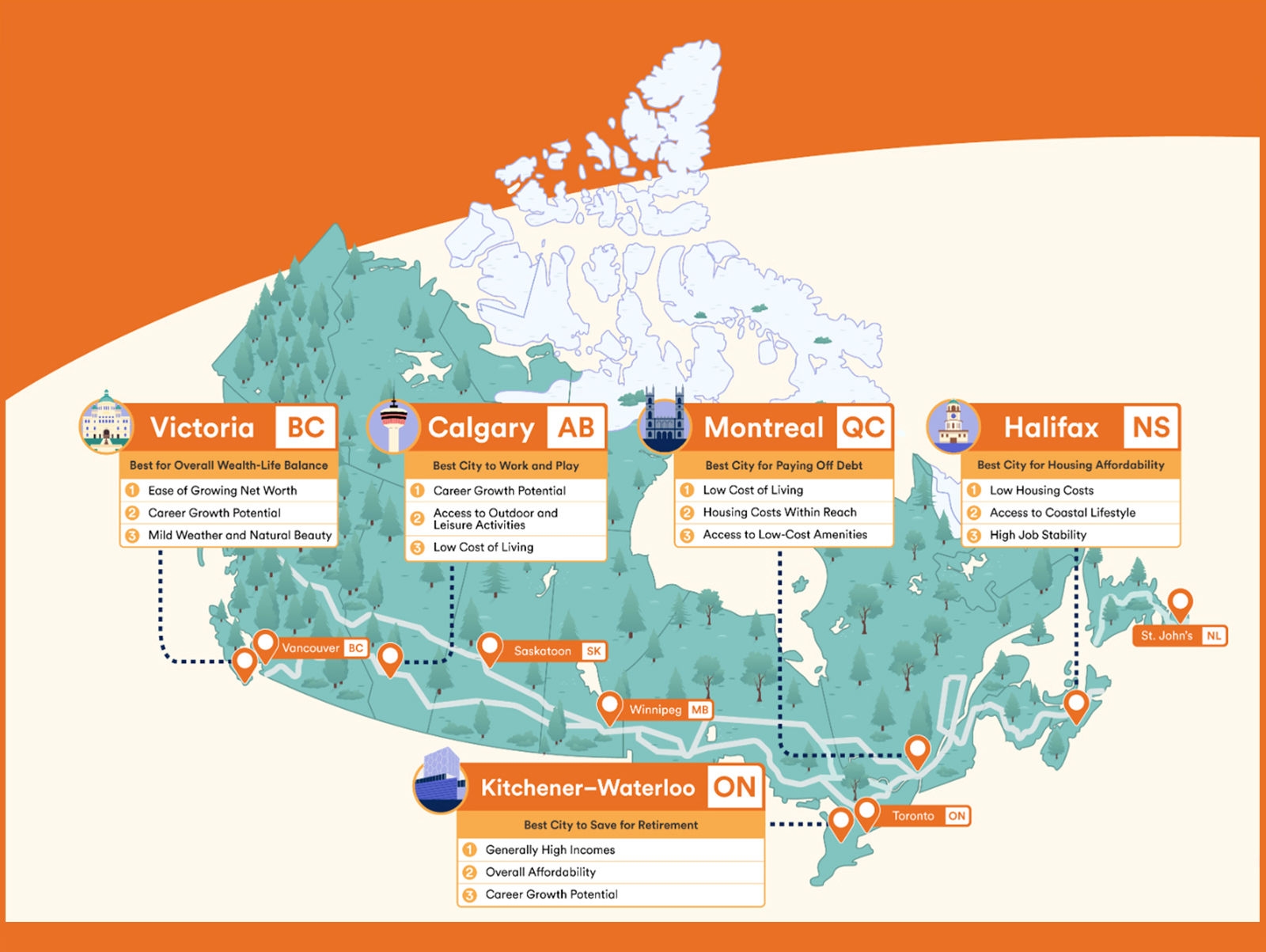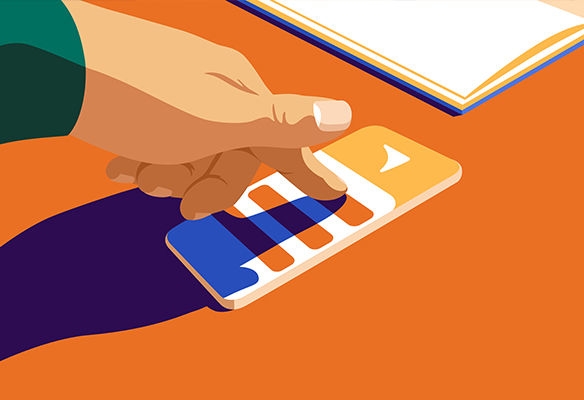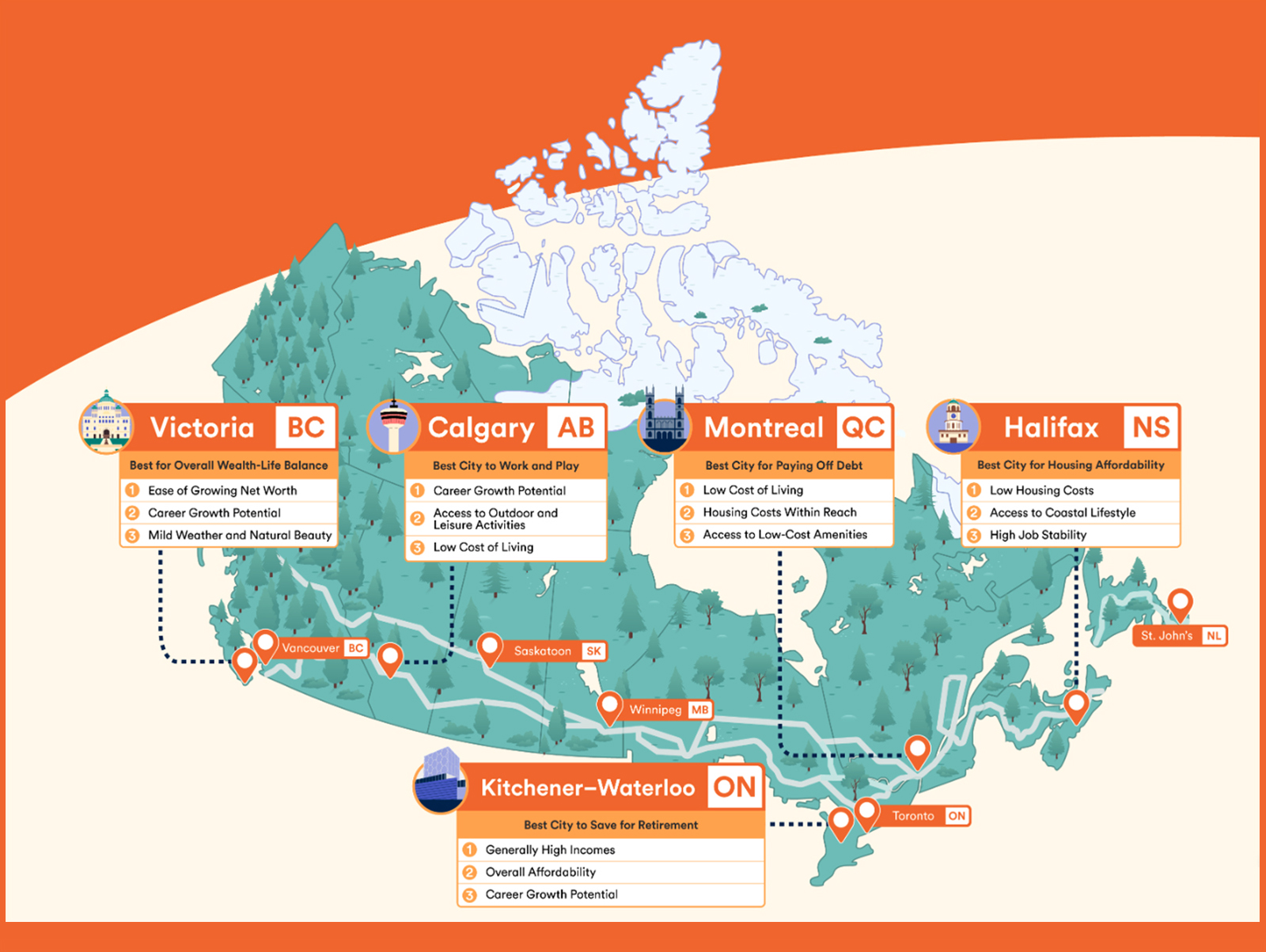The 'new normal' of higher interest rates: A Q&A with Tangerine's Chief Financial Officer
What is normal?
In the last year, we've seen inflation reach heights not seen in decades, then, thankfully, ease back down — a bit. We've seen the stock market fall, then rise, then fall, then rise again. Meanwhile, those interest rates just kept going up, along with our collective anxiety.
It's time to stop looking at this as a temporary phase, but as a “new normal" of higher interest rates, says Matthew Rajnauth, Tangerine's Chief Financial Officer, who has agreed to return for another financial reality check.
While there has been some pain and cause for concern in recent months, it's not all bad news, he assures, though it will take some time for us all to adjust to this new normal.
So last year, you answered some questions about how Canadians should try to cope with a changing economy that included high inflation, rising interest rates and a volatile stock market. How have things changed since then?
A lot has changed in the past year or so. Starting with inflation, that's proven to be much stickier than we expected — and that's resulted in the Bank of Canada (BoC) continuing to raise interest rates. A year ago, economists expected the BoC's interest rate would peak below 4%. Fast forward to July 2023, when the BoC increased it to 5%, and we could see it go even higher.
The good news is inflation is showing signs of stabilizing. In July, it was up 3.3% over the previous year, but that was an improvement from the 5% to 8% growth we experienced across 2022 — even if it was above the BoC's target rate of 2%. So, their work is not done, but this takes a bit of the pressure off.
That is good news. Does this mean we're going back to normal?
Not exactly, or not what we have come to think of as normal over the last number of years. I believe relatively higher interest rates will prove to be the “new normal" and are likely here to stay for some time.
Gotcha. Inflation is stabilizing, but the cost of living is still very high. And interest rates are the highest they've been for a long time. Isn't there anything more we can do about that? Can the Bank of Canada just print more money and make us all a bit richer?
Sadly, no — but I love the out-of-the-box thinking!
If the BoC were to print more money, and the economy stayed the same, we'd have more dollars to spend on roughly the same amount of products and goods. And that would actually add to inflation. It's a delicate balancing act, and I don't envy the tough spot the BoC is in!
While we're on the subject of banks, why does Tangerine need to follow what the Bank of Canada does? Can Tangerine lower the interest rates on Mortgages and Lines of Credit if we want to?
It's a great question. And the simple answer is it's all connected. The BoC is raising its interest rate because it wants to slow down the economy to help tame inflation. And as their rate goes up, the cost for banks to fund lending (like mortgages, for example) also goes up. So, the banks need to move rates in the same direction, and by doing this, they also make the BoC's actions more effective.
Oh well. We figured it couldn't hurt to ask politely. Anyway, when do you think Canadians will start to see some relief? What do you expect to happen over the next year?
Generally, I think we're near the top. Where inflation and the economy trend over the next few months will dictate whether the BoC needs to raise its rate even further. But over the next year, I would certainly expect rates to remain high. And even when the BoC does begin to cut its policy rate, it seems unlikely that interest rates will go back down to where they used to be. In my view, we should be getting ready for relatively higher rates to remain for several years out.
Keep in mind that although interest rates seem very high right now, it is because rates were unusually low for a long period. So there's a bit of a reset happening to the “new normal."
If this situation is really the new normal, how should that change the way we approach our finances?
Well, a higher rate environment means it will cost you more to carry debts, such as mortgages or car payments. So the first thing I would look at is any debt that you might have and try to pay it down where possible. If you have a variable rate mortgage, the monthly cost of that debt has gone up substantially. A good rule of rule of thumb is that you want to pay off the debts that have the highest interest rates first. It's also a good idea to look at whether you can consolidate your debts with a lower interest rate using a loan or line of credit.
Do you see a silver lining here?
Well, higher rates are great for savers. Take high interest savings accounts or GICs, for example. With higher rates, it's a great time to take advantage and grow your savings. Whether you're saving for a vacation, new car, a home, or retirement, a little boost can go a long way!
Money is tight right now for so many of us, and we've already done some of the things you talked about last year: cancelling subscriptions, tracking our expenses, and curbing some of our discretionary spending. What else could we be doing?
I would encourage everyone to stay focused on their longer-term goals. For example, saving for retirement takes a long time, and you're likely to go through many economic cycles while doing it. Keep your eye on the prize, make short-term adjustments as needed, but make sure to revisit and maintain that long-term goal. There are a lot of great automation tools out there, including Tangerine's Money Rules and Goals tools, that help you set your money targets and keep them up over time.
Let's say you come across $500. Should you use it to pay down debt or save it for the future?
It's a great question, and one that I get all the time. Generally, you want to put your money where it'll earn the best rate possible. If your debts have a higher interest rate than your savings, it's usually better to use that money to pay them down first.
When it comes to saving for the future, another good strategy is to set up regular automatic contributions to your accounts — whether it's $25 or $250 a month. This will help your safety net grow a lot faster and keep your goals on track.
What do you say to people who are losing sleep over their financial situation? Are there any resources to help reduce my worry about this difficult economy?
Having a plan and reviewing your finances will help to provide peace of mind knowing that you'll be able to ride out “rainy days" and any slower patches in the economy.
It's important to have some sort of emergency fund at the ready — whether that's a savings account or access to a line of credit — and hopefully you'll never need to tap into it, but if you do, you'll be thankful.
Thank you for playing, Matt. Hope you don't mind if we knock on your door again next year.
Anytime.
—Written by Ariel Teplitsky

